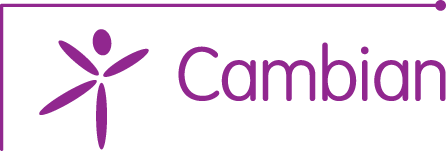At Cambian Brook View School we have Flexible Curriculum Pathways. These pathways at their core are the Pre-Formal, Informal, Semi-formal and Formal pathways. Each of these core pathways are ambitious, carefully sequenced, well-considered and progressive. Each pathway has its own curriculum but they are part of a greater learning continuum with each student getting a personalised curriculum to meet their academic and personal development needs. There are some shared aspects, for example, Skills for Life, careers education, SMSC, Fundamental British Values, personal safety, health education and Preparation for Adulthood. Students can move between the pathways or experience elements of more than one.
We use research and training to ensure our staff are equipped with specialist pedogeological knowledge to meet the needs of all our students. All staff understand the needs of students with SEND and they use informed specialist methodologies to deliver accessible and aspirational learning opportunities for all. The specialist pedagogies required can be different depending on the Key Stage, pathway or subject.
Curriculum Aims
- Provide a broad and balanced education for all pupils that’s coherently planned and sequenced towards cumulatively sufficient knowledge for skills and future learning and employment
- Enable pupils to develop knowledge, understand concepts and acquire skills, and be able to choose and apply these in relevant situations
- Support pupils’ spiritual, moral, social and cultural development
- Support pupils’ physical development and responsibility for their own health, and enable them to be active
- Promote a positive attitude towards learning
- Ensure equal access to learning for all pupils, with high expectations for every pupil and appropriate levels of challenge and support
- Have a high academic/vocational/technical ambition for all pupils
- Equip pupils with the knowledge and cultural capital they need to succeed in life
The curriculum provides a range of enhanced learning experiences including where possible, outdoor education, work related learning and community links.
![]()
"Pupils explore their surroundings and engage well in their education. There is a strong focus on ensuring that they can successfully communicate and express their feelings, choices and preferences. Over time, pupils build their knowledge and skills to achieve the high ambitions that the school has set out for their learning."- Ofsted Report 2025
![]()
Following admission to school, all children and young people will be assessed, so that each learner will have a learning programme and targets that allows them to leave school, where possible, with well-developed social and communication skills and skills in English, Maths and ICT. Progress in learning and personal development will be frequently assessed so that targets and learning programmes can be regularly modified.
For some learners, in meeting their entitlement to access the curriculum the school will need to plan for, and provide, specialist learning resources and support as defined within their Education Health Care Plan.
Learners are actively involved in the assessment of their progress and achievements so that they know how well they are doing, what they are aiming to achieve, how they can reach these goals and identify their next steps in learning.
Assessment is incorporated into all curriculum planning. Pupils progress is shared at all review meetings and is included in the end of year school report.
Positive Behaviour Management
As a whole school approach we are aware that children communicate through behaviour therefore; Road to Rewards is used to reward academic learning and positive social interaction throughout the school day. Once awarded a Road to Reward it cannot be deducted however, during each session of the school day including transport, lesson, breaks, lunches and assemblies etc. the children and young people can earn positive points.
Positive Road to Reward points can be awarded for the following:
- Arriving to school/lesson on time
- Completing work
- Independent learning
- Individual target – this is bespoke for each young person and displayed in their class
- Break time
- Positive behaviour
- Reading
- Team work
- Transport
- Extra points
Arrangements for Education Reviews
Annual EHCP reviews are a legal requirement and are held to
• to evaluate progress since the last review;
• and to plan for the next 12 months.
• In Year 6 and Year 9, reviews will include Transition Planning.
Transitional reviews - are held for pupils in Year 6 and Year 9 and subsequent years to formulate a Transition Plan to help plan for future needs and again at the end of Year 11.
